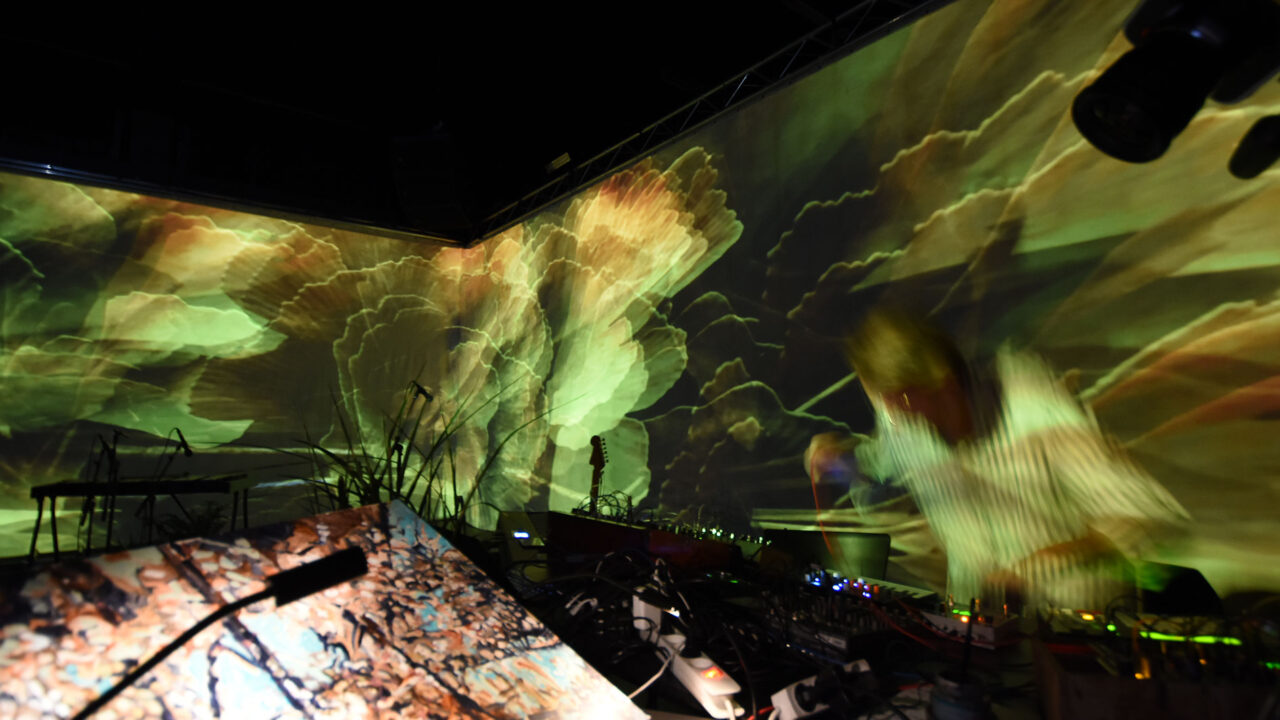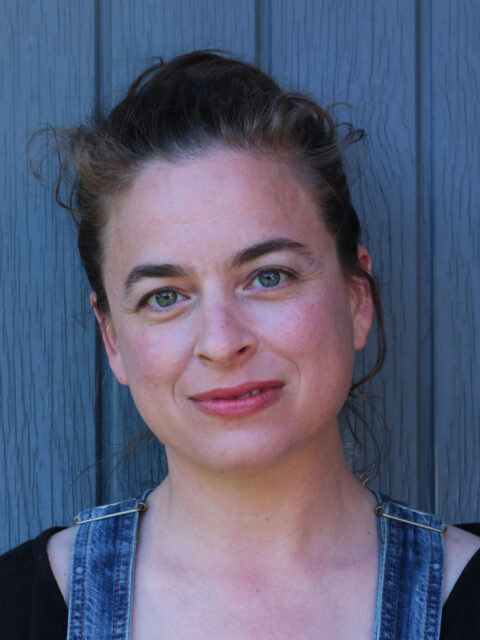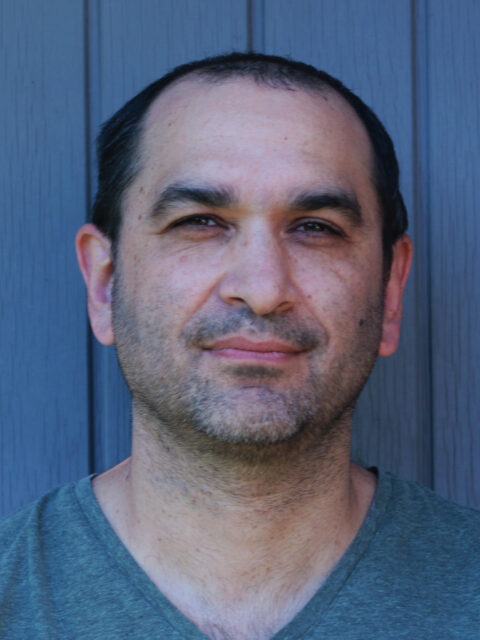Garden Alchemy
Michelle Kranot & Uri Kranot / Peter Fisher / Denmark
Garden Alchemy is an interactive audiovisual multi-user Experimentarium: a dynamic, shared playground where music, hand-painted animation, and immersive installations unite in harmony. The garden serves as an active and sensual space for contemplation, exploring human encounters as ecological acts through an immersive experience of the sublime.
Please put on your headset…
I enter the Garden. It is dusk. My vision is obscured, limited.
I hear the sounds of nature around me. The wind whistles. The insects buzz.
What am I?
I move my hand. It generates a flurry of particles and dust. I step forward leaving a trail of trampled vegetation behind. I roam around, acquiring my presence in this world. It opens and submits to me as I push forward. The yielding is pleasing and as the Garden reveals itself to me, I am encouraged to move deeper and deeper.
Suddenly, I see another cloud of dust. It moves just like myself. I get closer to it as it seems to be alive. It is! It reaches out to me. I reach out back. We connect.
There is a flash of electricity. Something just happened! Try again.
We both reach out and in an instance, we are connected by a stream of synapses. A slice of the world around us has changed. Not a garden anymore but an ethereal space; woven of delicately pulsating nerve-system-like connections.
But most of all, it is musical. The electronic sound of vibration envelopes us. Ripples through our bodies. We feel the gratitude.
We stay together. Move slow. It must sustain the equilibrium by remaining in a state of flux. It is a very delicate balance, influenced by our proximity and quality of motion – disrupt the connection and get thrown back to the world.
Then, another entity joins and reaches out for us. Connecting with them as well, our ethereal space expands. The music enhances and goes deeper, engulfing waves of comforting low frequencies all around. Stay calm for the connection to hold.
With each new partner, the world expands and the music crescend.
We can gently move around together as one big organism connected through synapses of shared knowledge.
We have become the Garden.
The Garden is an active, somatic experience, holding space for contemplation. One of the key concepts which frames the project is the notion of Bioregionalism. Similar to many indigenous culture’s relationship to land, Bioregionalism is first and foremost based on observation and recognition of what grows where; as well as appreciation for a complex web of relationships among those actors. More than observation, it also suggests a way of identifying with place, weaving oneself into a region through a shared responsibility of the local ecosystem. The garden is composed of terrain, vegetation, plants and insects; affected by natural elements such as the sun, the wind and the rain along with man-made threats such as global warming and pollution. By entering the Garden – a unique mini universe, a system with specific sets of rules and conditions, the participants have endless choices of how to live and inhabit the space. The Garden does not have a beginning or an end but rather a cyclic time span; users may drop in and out at any point. Where knowledge acquired by one participant can transfer to others and where the consequences of our behaviour leave their mark, The garden needs to keep a balance and be treated with respect and a sense of shared accountability.


